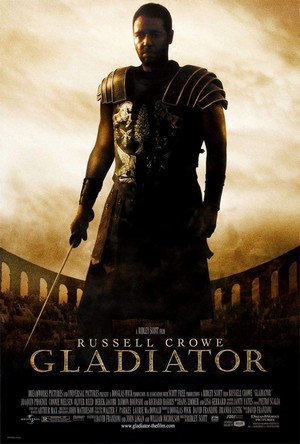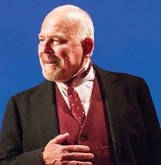
Gladiator (2000)

Raiting: ![]() 8,5 /10
8,5 /10
Genre: History
Director: Ridley Scott
Stars: Russell Crowe, Joaquin Phoenix and Connie Nielsen
Country: United States / United Kingdom / Malta / Morocco
Release date: 4 May 2000
Length: 155 minutes / 171 minutes (extended edition)








